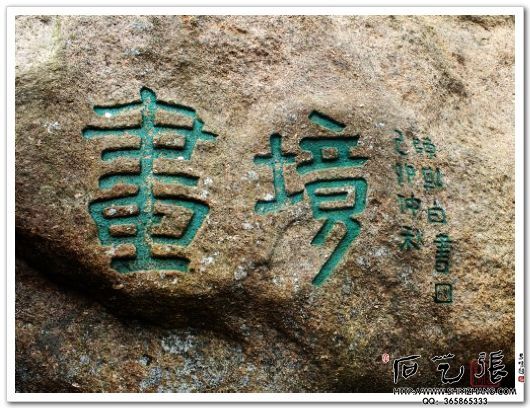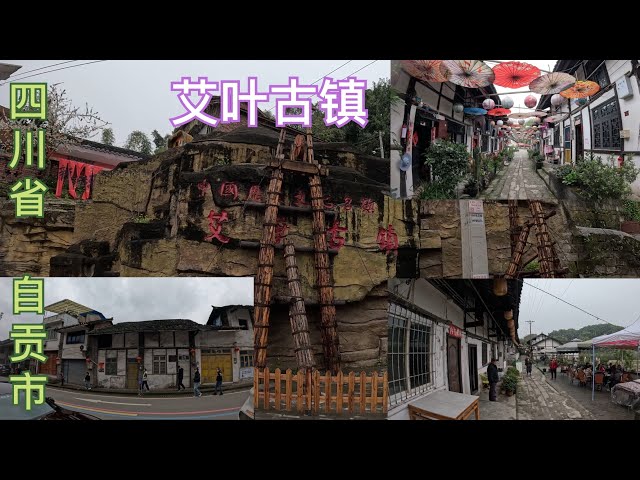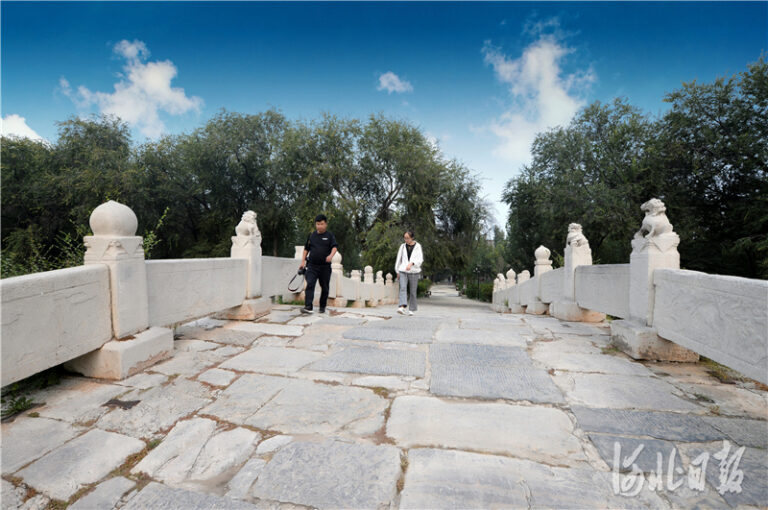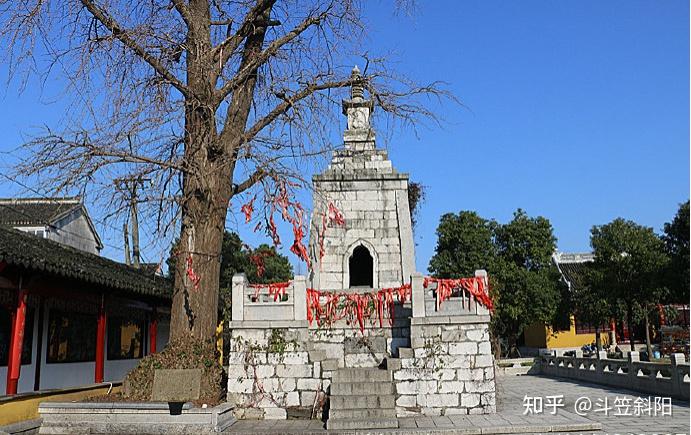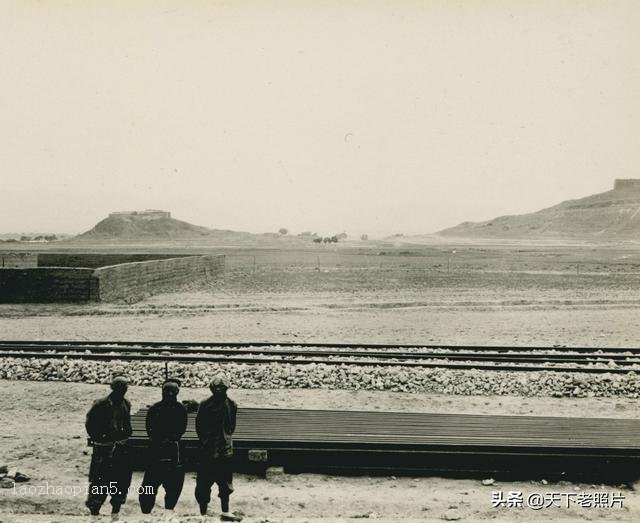Savor Authentic Ningbo Cuisine at Wangshouren Guju: Your Ultimate Guide
An Essential Guide to Visiting Ningbo Wangshouren Guju
In This Guide
- An Essential Guide to Visiting Ningbo Wangshouren Guju
- The Rich History of Ningbo Wangshouren Guju
- Main Highlights: What to See at Ningbo Wangshouren Guju
- Planning Your Visit: A Practical Guide
- Tickets, Hours, and Booking
- How to Get There
- Local Cuisine and Accommodation
- Frequently Asked Questions
- Final Thoughts on Your Trip
Nestled in the picturesque region of Yuyao, Zhejiang Province, the Wang Shouren Guju, or the Former Residence of Wang Yangming, stands as a testament to the profound legacy of one of China’s most revered philosophers and military strategists. Wang Yangming, born Wang Shouren in 1472, is best known for his influential contributions to Neo-Confucianism and the development of the philosophy known as “Heart-Mind” or “Xin Xue,” which emphasizes the unity of knowledge and action.
This historical residence, located at 36 Yangming West Road, is not merely a structure of wood and stone; it embodies the thoughts, struggles, and triumphs of a man whose ideas transcended time and geography, impacting not just Chinese philosophy, but also resonating deeply in Japan and Korea. Visitors to the site can explore the beautifully preserved architecture that reflects the typical features of Ming Dynasty homes, characterized by its elegant simplicity and harmonious layout.
As you wander through the halls of Wang Yangming’s childhood home, you will find exhibitions showcasing his life, philosophy, and the historical context in which he lived. With free admission and an inviting atmosphere, the residence offers a unique opportunity for travelers to connect with the rich cultural heritage of China. Set against the backdrop of lush landscapes and historical landmarks, a visit to Wang Shouren Guju promises to be an enlightening experience, perfect for those seeking to delve into the heart of Chinese thought and history. Whether you’re a philosophy enthusiast or a curious traveler, this site invites you to reflect on the enduring wisdom of one of China’s greatest minds and the serene beauty of its surroundings.
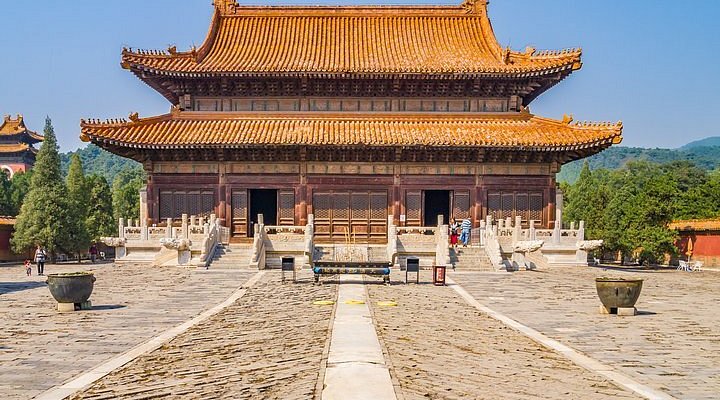
Ningbo Wangshouren Guju.
The Rich History of Ningbo Wangshouren Guju
Nestled in the city of Yuyao, Zhejiang province, the Ningbo Wangshouren Guju (王守仁故居) stands as a monument to one of China’s most esteemed philosophers, Wang Yangming (王阳明). Born in 1472, Wang Yangming, also known as Wang Shouren, was a prominent thinker of the Ming Dynasty, renowned for his contributions to Confucianism and the development of the theory of “mind” or “heart” philosophy, known as “Xinxue” (心学).
The historical significance of Wangshouren Guju extends beyond its role as the birthplace of this influential figure. The architecture of the residence itself reflects the typical style of Ming and Qing dynasty homes in eastern Zhejiang, characterized by its simplicity and elegance. The layout of the house, which spans approximately 4,800 square meters, is meticulously organized along a central axis, featuring a series of traditional structures including the main hall and the iconic Ruiyun Tower (瑞云楼), where Wang Yangming was born and spent his formative years.
Throughout his life, Wang Yangming returned to this residence several times, demonstrating a deep emotional connection to his birthplace. Notably, during one of these visits in 1521, he expressed profound sorrow for not being able to care for his ancestors’ graves due to his military duties. This poignant moment underscores the importance of familial bonds in Wang’s philosophy, which emphasized the unity of knowledge and action, and the moral responsibilities of individuals.

Ningbo Wangshouren Guju.
In 1996, the site was reconstructed after a devastating fire that had previously damaged parts of the estate. This restoration effort aimed to preserve the original architectural style and historical integrity of the residence, allowing visitors to appreciate the atmosphere in which Wang Yangming developed his ideas. Today, the residence features a museum dedicated to his life and teachings, showcasing artifacts, historical documents, and exhibitions that reflect his philosophical legacy.
Wang Yangming’s teachings, particularly the concept of “knowledge is action” (知行合一), have not only shaped Chinese thought but also influenced philosophical discourses in Japan and Korea, highlighting the broader impact of his ideas across East Asia. As a result, Wangshouren Guju serves not only as a historical site but also as a center for philosophical inquiry, attracting scholars and visitors alike who seek to understand the depths of Wang Yangming’s contributions to moral philosophy and education.
Visiting Wangshouren Guju allows one to step back into a significant era of Chinese history, where the interplay of thought and action continues to resonate in modern philosophical discussions. The serene environment and the rich cultural heritage encapsulated within its walls offer a unique opportunity for reflection and learning, making it a must-visit destination for those interested in the profound legacy of one of China’s greatest thinkers.
Main Highlights: What to See at Ningbo Wangshouren Guju
Visiting Ningbo Wangshouren Guju offers a unique glimpse into the life and legacy of Wang Yangming, one of China’s most influential philosophers and educators from the Ming Dynasty. Nestled in the historic city of Yuyao, this residence not only showcases the architectural charm of the era but also serves as a significant cultural site reflecting the profound philosophy of “Unity of Knowledge and Action.”
Key Highlights:
-
Historical Significance
Wang Yangming, born in 1472, is celebrated for his contributions to Neo-Confucianism, particularly the concept of “xin” (heart/mind) and its role in moral decision-making. His birthplace, Wangshouren Guju, is a pilgrimage site for scholars and philosophy enthusiasts seeking to understand his teachings and their impact on East Asian thought. -
Architectural Beauty
The residence features traditional Ming Dynasty architecture with a symmetrical layout that encompasses a stone-carved entrance, expansive hallways, and delicate wooden structures. The main building, known as Ruiyun Lou, showcases exquisite craftsmanship, including intricate brick carvings and a serene courtyard filled with plant life, which evoke the scholarly tranquility of Wang’s time. -
Cultural Exhibitions
Inside the museum, visitors can explore a wealth of artifacts, manuscripts, and documents that detail Wang Yangming’s life and philosophies. The exhibitions provide insights into his teachings, including the practical application of knowledge in daily life, making it a rich resource for those interested in Chinese philosophy. -
Spiritual Experience
Walking through the peaceful gardens and courtyards, visitors can reflect on Wang Yangming’s dedication to learning and self-cultivation. The ambiance of the site encourages introspection, making it a perfect place for those seeking spiritual growth and understanding of moral philosophy. -
Accessibility and Visitor Information
Wangshouren Guju is open daily from 8:30 AM to 5:00 PM, with free admission making it an accessible destination for all. Located in Yuyao, it is easily reachable by public transportation and is often included in broader itineraries exploring the rich history and culture of the Ningbo area. -
Surrounding Attractions
The area around Wangshouren Guju offers additional cultural sites, such as the Hemudu Cultural Site and scenic spots like the Siming Mountain National Forest Park. Visitors can easily extend their experience to enjoy the natural beauty and historical richness of this region.
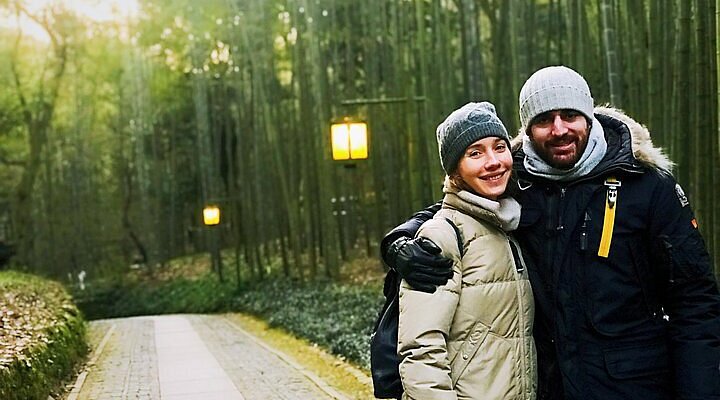
Ningbo Wangshouren Guju.
Exploring Wangshouren Guju is not merely a visit to a historical building; it is an immersive journey into the heart of Chinese philosophical thought and the enduring legacy of one of its greatest minds. Whether you are a history buff, a philosophy enthusiast, or simply curious about Chinese culture, this site promises an enriching experience.
Planning Your Visit: A Practical Guide
Visiting the Wangshouren Guju (王守仁故居) offers a remarkable opportunity to immerse yourself in Chinese history and philosophy. Here’s everything you need to know to make the most of your visit to this culturally significant site.
Location and Access
Wangshouren Guju is located at 36 Yangming West Road, Yuyao City, Ningbo, Zhejiang Province. The site is easily accessible by various modes of transportation:
- By Car: If you’re driving from Ningbo city center, take the Hangning Expressway (杭甬高速) to reach Yuyao in about an hour.
- By Public Transport: Frequent buses run from Ningbo’s South Bus Station to Yuyao, taking approximately one hour. Alternatively, you can take a high-speed train to Yuyao North Station, which is a convenient option for travelers coming from farther afield.

Ningbo Wangshouren Guju.
Opening Hours and Admission
The residence is open to visitors daily from 8:30 AM to 5:00 PM. Admission is free, making it an accessible stop for anyone interested in exploring the legacy of Wang Yangming, a prominent philosopher and military strategist of the Ming Dynasty.
Suggested Duration of Visit
Plan to spend about 1 to 2 hours at the site. This will give you ample time to explore the historical architecture, view the exhibits, and reflect on the philosophical teachings of Wang Yangming.
What to See
At Wangshouren Guju, you will find:
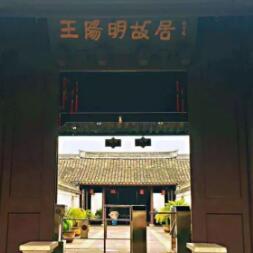
Ningbo Wangshouren Guju.
-
Historical Exhibits: The main building features a variety of displays that highlight Wang Yangming’s life, including photographs, artifacts, and literature that showcase his contributions to philosophy and education.
-
Architectural Details: The residence retains classic Ming and Qing architectural styles, providing insight into the period’s design aesthetic. The layout is symmetrical, and the buildings are arranged along a central axis, typical of traditional Chinese residences.
-
Scenic Gardens: The surrounding gardens are beautifully maintained, offering a serene environment for contemplation. It’s a perfect spot to relax and appreciate the tranquility of the area.
Nearby Attractions
Extend your visit by exploring other notable sites in Yuyao:
- Hemudu Site Museum: Explore one of the earliest Neolithic sites in China, showcasing artifacts that date back over 7,000 years.
- Siming Mountain National Forest Park: Just a short drive away, this park features stunning natural landscapes, hiking trails, and waterfalls, ideal for nature lovers.
- Yuyuan Garden: Known for its beautiful landscaping and traditional Chinese architecture, this garden is a wonderful place to stroll and enjoy the scenery.

Ningbo Wangshouren Guju.
Local Cuisine
While in Yuyao, don’t miss the chance to sample local delicacies:
- Yuyou Yangmei: A sweet berry native to the region, best enjoyed fresh during the harvest season in June.
- Liangnong Rice Cake: A traditional snack made from glutinous rice, perfect for a quick bite during your day of exploration.
- Yuyao Yellowfish Noodles: A local favorite, this dish features fresh fish in a delicate broth, often served as a hearty breakfast.
Tips for Visitors
- Respect Local Customs: As you explore, be mindful of the local culture and traditions. This includes maintaining a respectful demeanor, especially in historical and religious sites.
- Plan for Weather Changes: Depending on the season, the weather can vary. Spring and autumn are ideal for visiting, with pleasant temperatures. Summer can be hot, so stay hydrated and wear sunscreen.
- Check Exhibit Schedules: Occasionally, special exhibitions or events may be held at the residence. It’s a good idea to check in advance what’s on display to enhance your visit.
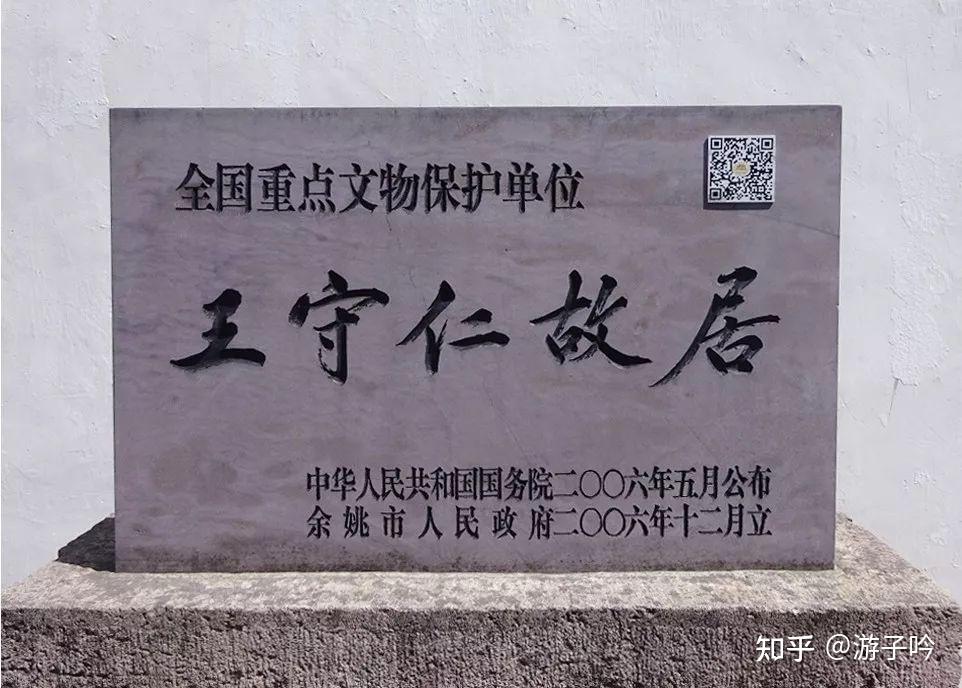
Ningbo Wangshouren Guju.
Conclusion
A visit to Wangshouren Guju is not just a journey through time but also an opportunity to engage with the philosophies that shaped Chinese thought. Whether you are a history enthusiast, a philosophy buff, or simply looking for a serene place to reflect, this site promises a memorable experience. Enjoy your exploration of this cultural gem!
Tickets, Hours, and Booking
Visiting the Wang Shouren Guju, the former residence of the esteemed philosopher Wang Yangming, offers a unique opportunity to delve into Chinese history and culture without the burden of an admission fee.
Ticket Information
- Entrance Fee: Free
- Opening Hours: The site is accessible daily from 8:30 AM to 5:00 PM.
- Duration of Visit: Visitors typically spend 1 to 2 hours exploring the premises and exhibitions.
Guests are welcome to stroll through the beautifully preserved architecture that reflects the Ming and Qing dynasties’ styles. Within the residence, you’ll find a dedicated museum showcasing various artifacts and historical documents related to Wang Yangming’s life and influential teachings, allowing for an insightful and enriching experience.
Since there is no admission charge, you can enjoy this cultural gem without any financial constraints, making it an ideal stop for history buffs, philosophers, and anyone interested in China’s rich intellectual heritage.
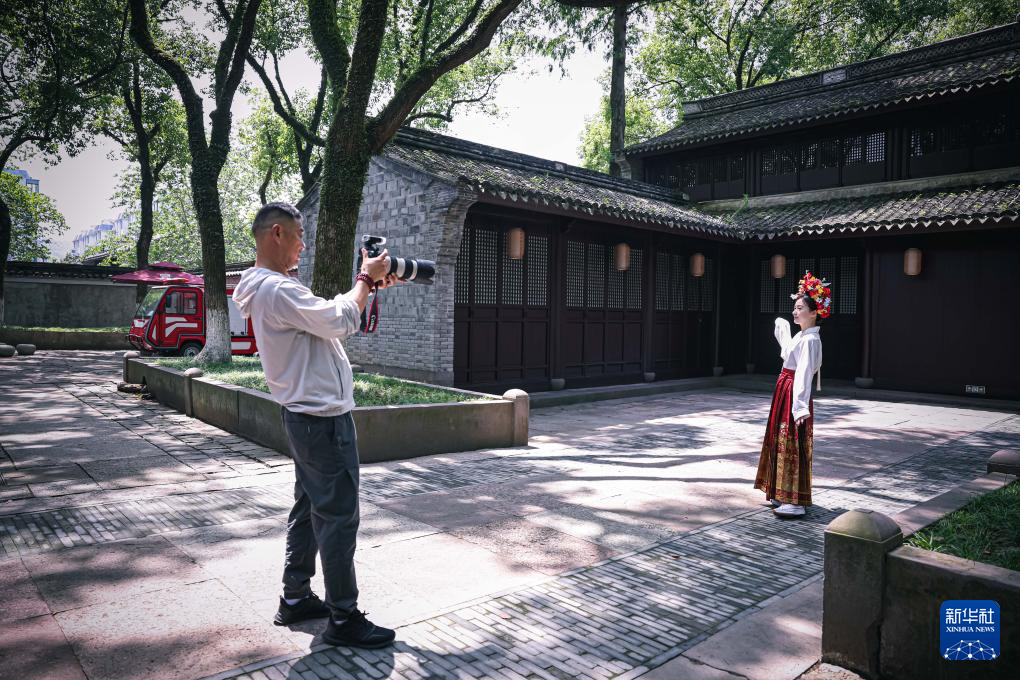
Ningbo Wangshouren Guju.
How to Get There
Getting to Ningbo Wangshouren Guju, the former residence of the renowned philosopher Wang Yangming, is quite straightforward, whether you’re coming from nearby cities or traveling from further afield. Here’s a comprehensive guide to help you navigate your way to this cultural gem in the heart of Zhejiang Province.
By Car
For those who prefer the flexibility of driving, self-driving to Wangshouren Guju is a great option. The residence is conveniently located approximately 1 hour from Ningbo city center via the Hang-Ning Expressway (杭甬高速公路). Make sure your GPS is updated with the address: 36 Yangming West Road, Yuyao City, Ningbo, Zhejiang Province. Parking is available nearby, making it easy to explore the area at your leisure.
By Train
If you’re coming from major cities like Shanghai or Hangzhou, taking the high-speed train is an efficient and comfortable choice. The nearest high-speed train station is Yuyao North Station (余姚北站), which is about a 30-minute taxi ride from the residence. From Ningbo, you can also take a regular train to Yuyao, which takes about 1 hour. Once you arrive at Yuyao Station, taxis and local buses are readily available to take you to the residence.
By Bus
For a more economical option, consider using the bus service. Frequent buses run from Ningbo South Bus Station (宁波南站) to Yuyao City, with a travel time of approximately 1 hour. Once in Yuyao, local buses and taxis can take you directly to Wangshouren Guju. This option is not only budget-friendly but also allows you to experience the local transport system.
Local Transportation
Once you arrive in Yuyao, getting around to different attractions is simple. Taxis are widely available and affordable, making it easy to travel between various historical sites such as the Wangshouren Guju, the Hemudu Site Museum, and the Siming Mountain National Forest Park. Alternatively, local buses can connect you to several key points of interest, though they may require some transfers.
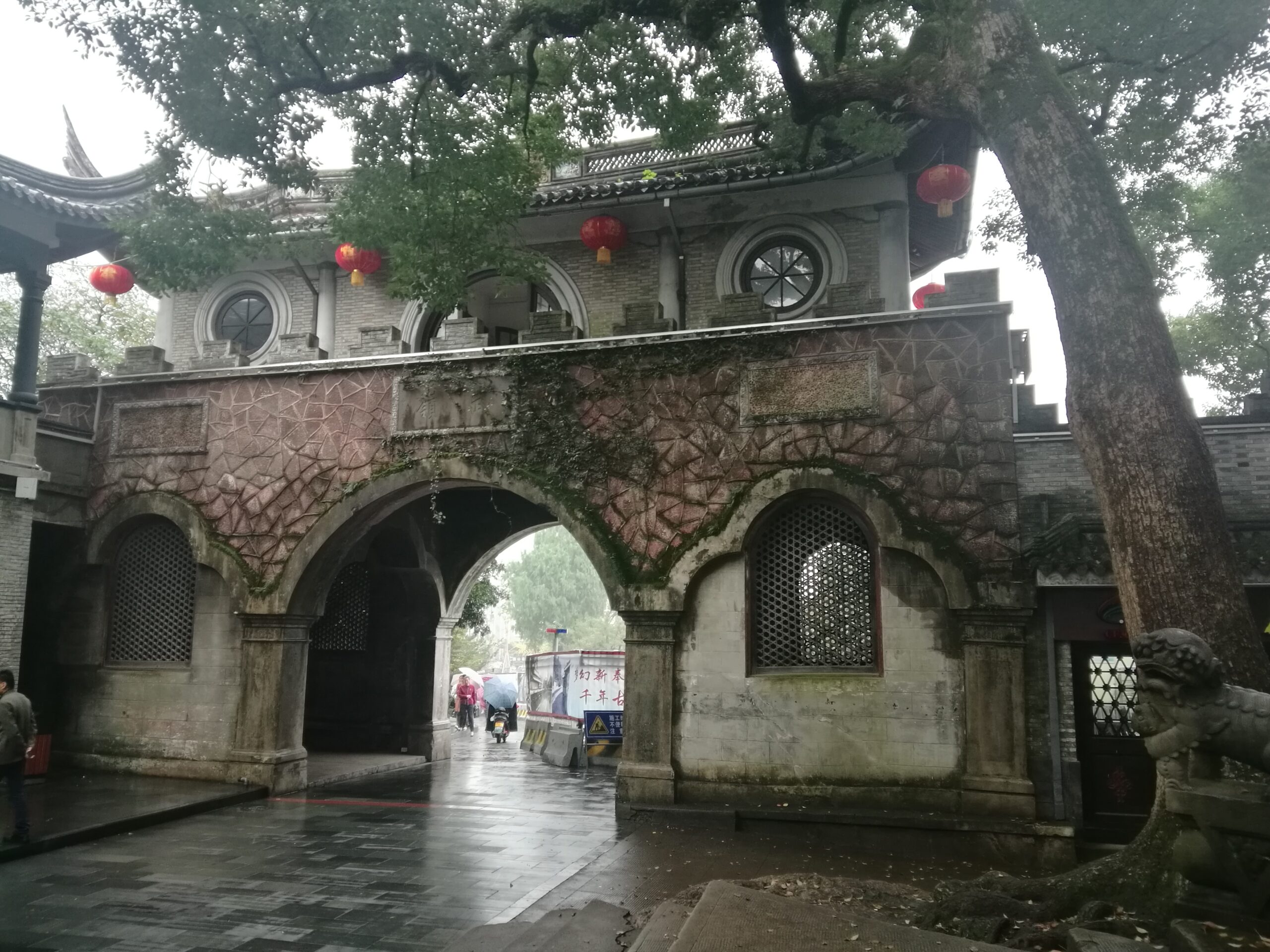
Ningbo Wangshouren Guju.
Accessibility
Wangshouren Guju is open to visitors and offers free admission, allowing for a leisurely exploration of the site. However, it’s advisable to check the opening hours in advance, as they can vary seasonally.
Tips for Travelers
- Plan Ahead: If you’re traveling during peak seasons, such as national holidays, it’s wise to book your train or bus tickets in advance to secure your travel plans.
- Language: While many signs are in English, having a translation app can be helpful, especially when dealing with local transportation.
- Weather Considerations: Be mindful of the weather, as heavy rain can affect travel plans, particularly in summer and fall.
With this transportation guide, you should be well-equipped to embark on your journey to Wangshouren Guju and immerse yourself in the rich cultural heritage of this historic site in Ningbo. Enjoy your visit!
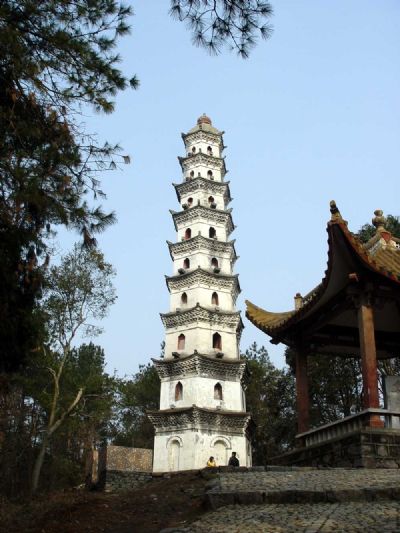
Ningbo Wangshouren Guju.
Local Cuisine and Accommodation
When visiting the historic Wang Shouren Guju (王守仁故居) in Ningbo, the experience extends beyond the rich philosophical heritage of Wang Yangming to the delightful local cuisine and comfortable accommodations that enhance your stay.
Dining Delights
Ningbo’s culinary scene reflects its rich cultural history, offering a variety of local delicacies that are a must-try for any visitor:
-
Yuyao Yangmei (余姚杨梅): June marks the season for fresh yangmei, a sweet and tangy fruit native to the region. Visit local orchards in places like Liangnong to pick your own and savor the taste of this seasonal treat.
-
Liangnong Da Gao (梁弄大糕): This traditional rice cake, made from glutinous rice flour, comes with various fillings such as red bean paste and sesame. It’s a perfect snack or souvenir that encapsulates the area’s local flavors.
-
Lubu Dou Su Tang (陆埠豆酥糖): A century-old specialty made from high-quality soybeans and maltose, this sweet treat is crispy and melts in your mouth, providing a unique taste of Ningbo’s confectionery tradition.
-
Yuyao Huang Yu Mian (余姚黄鱼面): A local breakfast favorite, this dish features fresh yellow fish simmered in a flavorful broth served with chewy noodles, embodying the essence of Ningbo’s seafood heritage.
-
Langxia Dou Jiang (朗霞豆浆): Made using traditional stone mills, this rich soy milk pairs wonderfully with fried dough sticks or savory pancakes for a hearty breakfast.
Places to Stay
For a comfortable stay near Wang Shouren Guju, consider these accommodation options, which cater to a range of preferences and budgets:
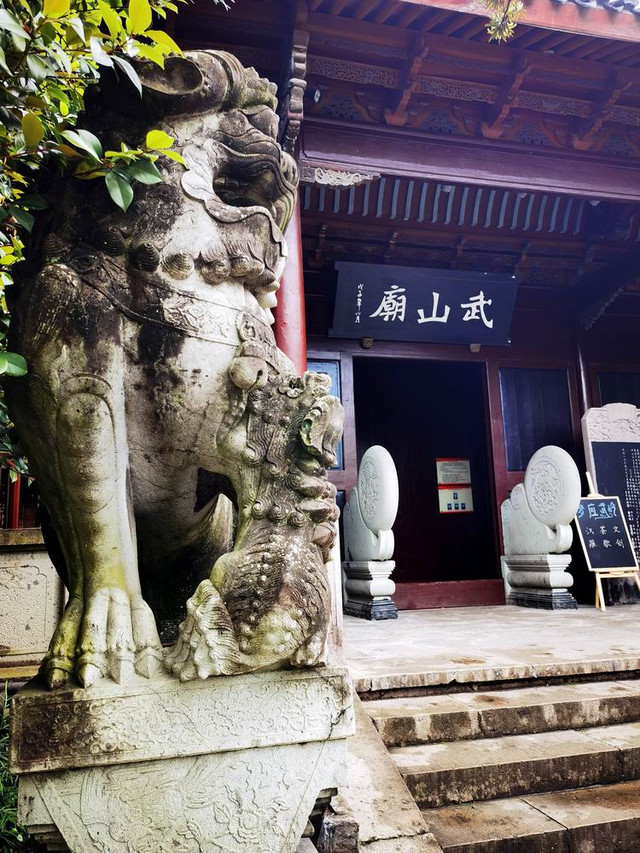
Ningbo Wangshouren Guju.
-
Yuyuan Hotel (余姚宾馆): Located conveniently in the city center, this hotel offers modern amenities and easy access to local attractions, making it ideal for both business and leisure travelers.
-
Pacific Hotel (太平洋大酒店): Known for its excellent service and facilities, this hotel provides a luxurious experience, complete with a restaurant serving local and international cuisine.
-
Chengmao Hemudu Hotel (辰茂河姆渡酒店): This hotel combines comfort with a cultural experience, situated close to historical sites. It offers a tranquil environment perfect for relaxation after a day of sightseeing.
-
Zhejiang Dongfang Hotel (浙江东方酒店): A great choice for travelers seeking comfort and convenience, this hotel features well-appointed rooms and is close to public transport options.
-
Traditional Guesthouses: For a more intimate experience, consider one of the charming guesthouses around the area, especially near the scenic spots like Siming Mountain and the picturesque Xiaojuzhai. These accommodations often provide a cozy, homely atmosphere and allow guests to immerse themselves in local culture.
Conclusion
Whether you’re indulging in the flavors of Yuyao or settling into a comfortable hotel, your visit to Wang Shouren Guju will be complemented by the rich food and welcoming accommodations the region has to offer. Enjoy your journey through history and taste!
Frequently Asked Questions
Frequently Asked Questions about Ningbo Wangshouren Guju
-
Where is Wangshouren Guju located?
Wangshouren Guju, the former residence of Wang Yangming, is situated at No. 36, Yangming West Road, Yuyao City, Ningbo, Zhejiang Province, China. -
What are the opening hours for the residence?
The residence is open to visitors daily from 8:30 AM to 5:00 PM. -
Is there an entry fee to visit Wangshouren Guju?
Admission to Wangshouren Guju is free of charge. -
How long should I plan to spend at the site?
It is recommended to allocate about 1 to 2 hours for a comprehensive visit to appreciate the exhibits and the historical architecture. -
What can I expect to see inside Wangshouren Guju?
Visitors can explore the restored buildings, including the main hall and the exhibition rooms that showcase Wang Yangming’s life, achievements, and the philosophy of “Unity of Knowledge and Action.” -
Are there any nearby attractions?
Yes, nearby attractions include the Yuyao Museum, Longshan Park, and historical sites such as Tongji Bridge. -
What is the best time to visit Wangshouren Guju?
The best times to visit are during the spring (March to May) and autumn (September to November) when the weather is pleasant for outdoor explorations. -
How can I get to Wangshouren Guju from Ningbo?
You can reach Wangshouren Guju by driving, which takes approximately an hour via the Hang-Ning Expressway. Public transportation options, such as buses from Ningbo South Bus Station, are also available, with a travel time of about one hour.
Final Thoughts on Your Trip
Visiting the Ningbo Wangshouren Guju offers a unique opportunity to delve into the life and philosophy of one of China’s most revered thinkers, Wang Yangming. Set against the backdrop of a traditional Jiangnan architectural style, this historic site not only preserves the legacy of Wang Yangming but also serves as a vital cultural hub for those seeking wisdom and insight into his teachings.
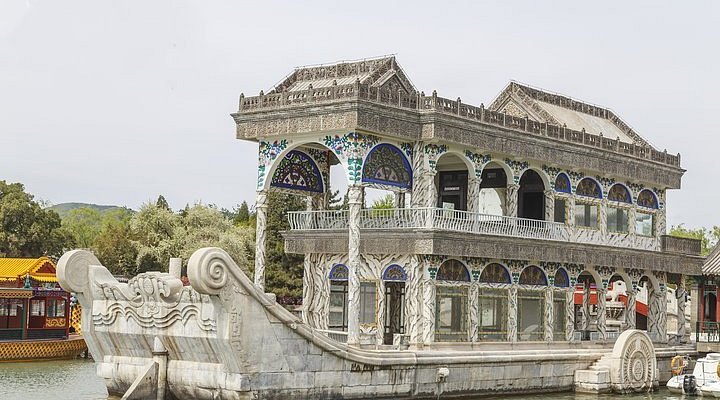
Ningbo Wangshouren Guju.
As you wander through the tranquil courtyards and explore the exhibits that detail his life and contributions to Neo-Confucianism, you will find yourself reflecting on the profound principles of “unity of knowledge and action” that he championed. Whether you are a history enthusiast, a philosophy scholar, or simply a curious traveler, this site promises to inspire and enlighten.
Ningbo, with its rich tapestry of history and culture, invites you to not only explore its physical landmarks but to engage with the enduring ideas that have shaped Chinese thought. A visit to Wangshouren Guju is more than just a journey through time; it is an exploration of the human spirit’s quest for knowledge and understanding. Embrace the chance to connect with the past and let the wisdom of Wang Yangming guide you in your own life’s journey.

